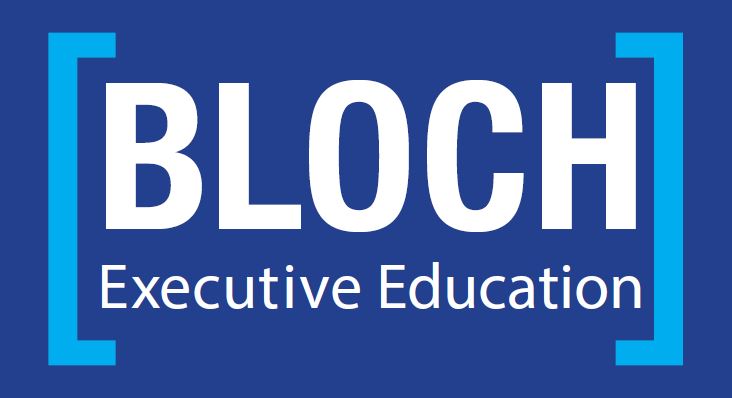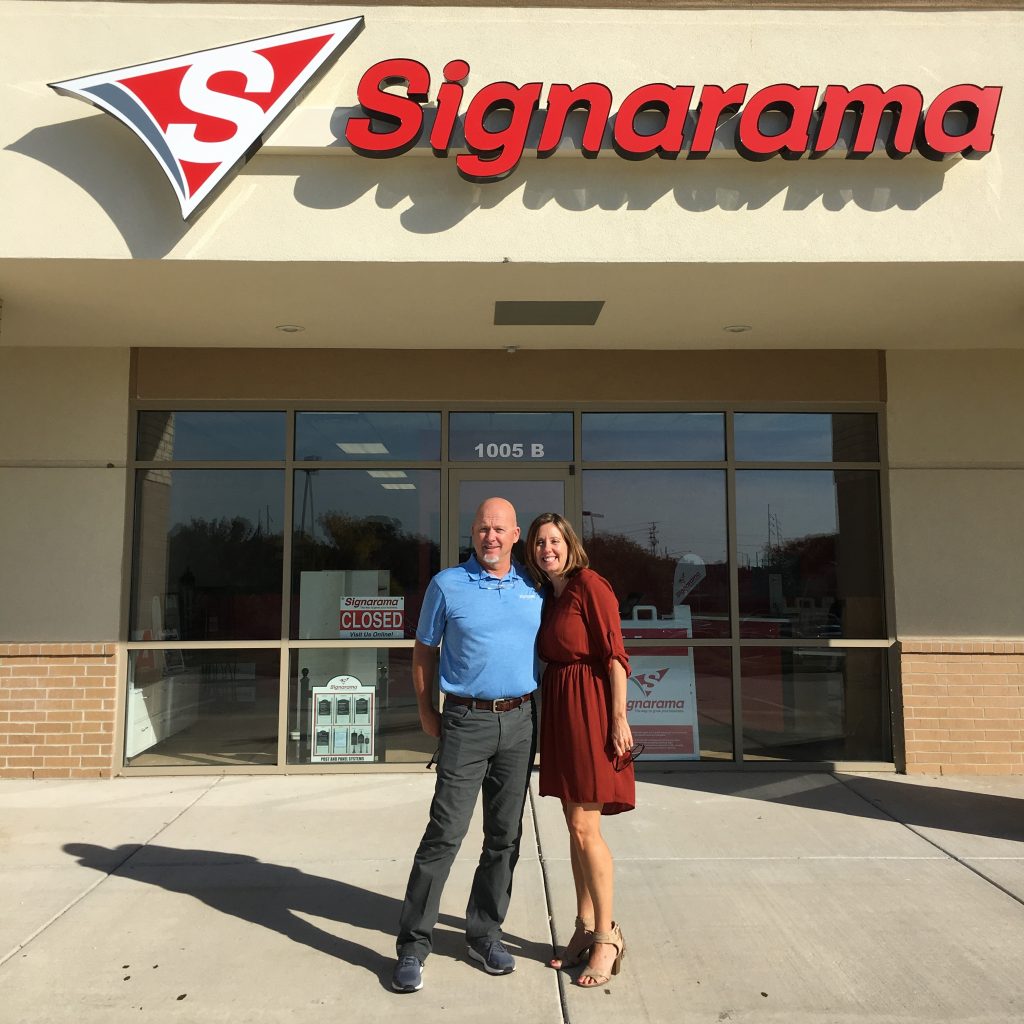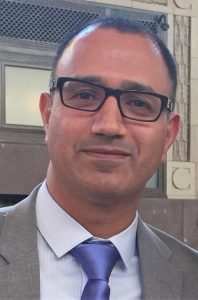Home » 2016
Yearly Archives: 2016
Leadership Courage
Leading people is a paradoxical feat. We say we want one thing from leaders and then ask for something else altogether that seems contradictory. Leading is a balancing act. It is finding balance between the needs of the people and the needs of the organization. It is accelerating decision-making but being collaborative (which can be slow). It requires that you are empathetic and compassionate while holding people accountable to their goals. Leaders regularly get confused and overwhelmed and wonder where to start. According to Bill Treasurer, the author of Courage Goes to Work, you should start with courage. I couldn’t agree more!
Managerial courage – it’s usually associated with making tough decisions or having crucial conversation during difficult circumstances or with difficult people. According to Korn Ferry Leadership ArchitectTM some of the reasons people have lower skill in this area are because they fear being wrong, fear losing, fear getting emotional or fear being out in front. Almost all of the cited reasons revolve around fear.
True courage is understanding that it is natural to feel fear as an emotion. It is also important to know that when we are afraid we often exaggerate the possible outcomes. We misjudge the probable dangers and underestimate the potential rewards of stepping forward and doing it scared. Fear, in essence, is interference. It is getting in the way of leaders doing the things that stand to improve business outcomes and increase workplace engagement.
Korn Ferry almost makes me sad when they also share that not only is courage in low supply and that leaders generally are unskilled in the courage competency; it is much harder to develop courage muscle.
Almost!
Courage, just like anything else, is a teachable and learnable skill. And as one of my favorite leadership coaches Alan Fine professes, we all have the capacity to improve our level of performance. Courage is not excluded in that statement. People have the capacity to be courageous. Our job is to remove the interference that fear causes by
- taking a look at our personal courage history
- learning how to remove the interference related to fear
- understanding our own purpose and values so we can align to the things that matter most to us.
Our current times are calling for courageous leaders who will stand up and stand out for attempting to understand the basic human condition of falling short sometimes. This is a compassionate leader who thinks first about how he or she can take an additive approach that is helpful. It will require that you do it scared sometimes but the benefits far outweigh the risks.
About the Author
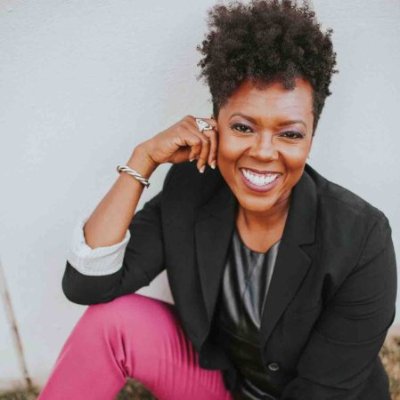 Nicole Price understands that if leadership is anything, it is personal, and that everyone can be a great leader. So she gets personal. Nicole’s transparency allows others to learn from her mistakes and helps them avoid the same pitfalls. She gets real. She will tell you, yes, having differences within a team can be harder, but that hard work can really pay off — both professionally and personally. And she gets wise. She’ll tell you, in a heartbeat, how she’s gotten a few things wrong over the years, but a little grace and some solid coaching saved her.
Nicole Price understands that if leadership is anything, it is personal, and that everyone can be a great leader. So she gets personal. Nicole’s transparency allows others to learn from her mistakes and helps them avoid the same pitfalls. She gets real. She will tell you, yes, having differences within a team can be harder, but that hard work can really pay off — both professionally and personally. And she gets wise. She’ll tell you, in a heartbeat, how she’s gotten a few things wrong over the years, but a little grace and some solid coaching saved her.
Through leadership development, coaching, consulting, keynotes, and other resources, Nicole encourages and enables others to live their lives in excellence. Her energetic and engaging sessions leave participants with strategies and specific tools that they can apply right away. Her lively presentation style garners rave reviews and, very often, an invitation to return. Nicole received her B.S. in chemical engineering from North Carolina A&T University and her master’s degree in adult education from Park University.
Bloch Executive MBA Alumni Feature: Denise Buffington
While in China during the Global Residency, Denise Buffington (Class of 2016) and her fellow female colleagues in the class of 2016, decided to launch a book club to stay connected after graduation. The primary goal of their book club is provide a place where members can discuss issues and opinions in a supportive environment, similar to the cohort experience during the Executive MBA program.
Members can make recommendations for which books to read, and they alternate between fiction and non-fiction. Book selections to date have featured Lean In: Women, Work and the Will to Lead by Sheryl Sandburg, Go Set a Watchman by Harper Lee, and Presence by Amy Cuddy. Denise brings discussion guides (often available online) to spark group conversation around key themes from the reading.
To accommodate busy schedules, they meet quarterly and members who are unable come in person are encouraged to join the meetings virtually. Throughout the program Denise, the Director of Energy Policy and Corporate Counsel at Kansas City Power & Light, earned a reputation for organization that is reflected in the Book Club Charter she created to provide a basic sense of social order for the club.
If you’ve ever thought about starting a book club or think this might be a good idea for your cohort, you can find Denise’s recipe (the Book Club Charter) below:
BOOK CLUB CHARTER
- Participation. Members who have not read the book – come anyway! Not everyone can finish every book, but not readers my still have valuable insights. Additionally, this group is as much a professional networking club as it is a book review/exchange club.
- Group Size. Please feel free to invite other professional women that might be interested in participating. We currently have 7 members. We could expand to approximately 12-15 and still be manageable so everyone should think about inviting a friend.
- Non-Fiction/Fiction. We will alternate non-fiction and fiction. This rule can be waived if the majority of the group has a strong preference for a book.
- Timing. We plan to meet approximately every 3 months.
- Book Selections. Please send 2-3 book selections to Denise. The objective is to compile a list for the next year or two. If you don’t like a particular book, as noted above, you do not need to read it participate!
- Discussions. There is never one way to experience or interpret a book. When there are disagreements about the book, be gracious! Differing opinions make better discussions. Try to avoid words like “awful” or “idiotic” or even “like” or “dislike.” These types of words do not move the discussion forward and can put others on the defensive. Instead, talk about your experience — how you felt as you read the book.
- Leader. The person that suggests the book we are reading should be prepared to start and lead the discussion (or delegate the responsibility).
- Limits. We did not set limits on paperback vs. hardcovers or pages, but try to keep the books around 400 pages so that it remains manageable for everyone to finish the book.
Bloch Executive MBA Alumni Feature: Wai Lee
Bloch Executive MBA alumnus Wai Lee (Class of 2016) is passionate about innovation. He holds a master’s degree in computer science and has more than 20 patents issued to his name. Currently, Wai is the A51 Director and Chief Product Architect at Garmin where his recent work has focused on Garmin’s wellness and smart wearables technology.
Wai isn’t the only innovator in his family. His wife, Olive Lee, also holds a degree in computer science and has a background in programming. Together, they have launched a new startup that could improve physician/patient interactions and health outcomes.
What is this new technology? Well…it’s a book. While it may seem counterintuitive for such a tech savvy couple to create a startup using good old fashioned paper and ink, it makes quite a lot of sense.
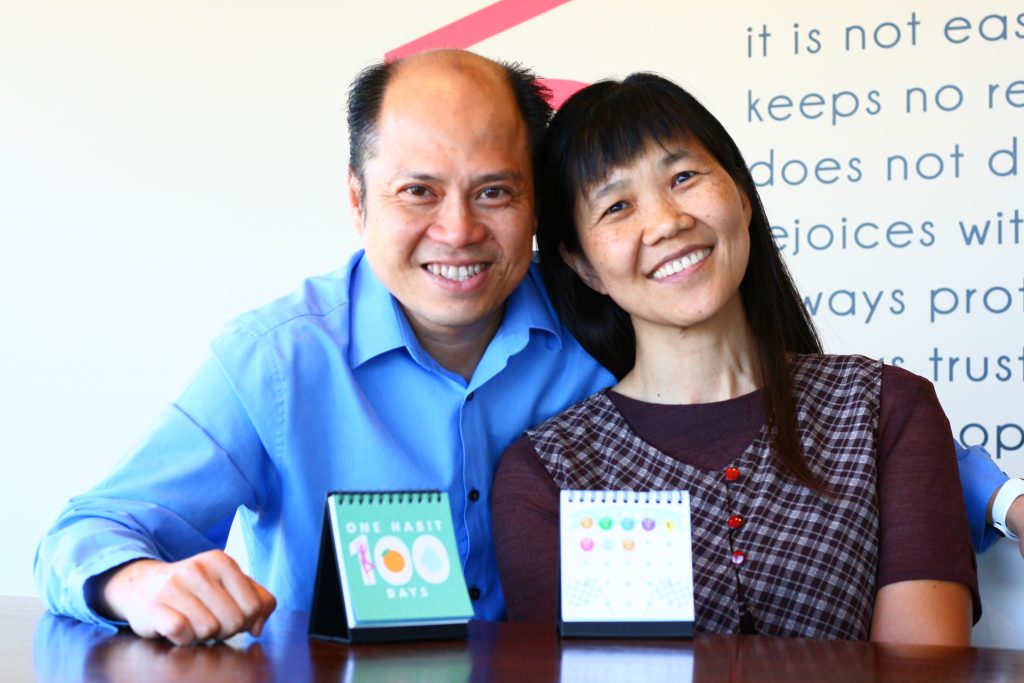
Through conversations with physicians and nurses, a common problem emerged: patients knew what changes they needed to make to improve their health, but failed at high rates to implement the recommendations made by their doctors.
From this problem, Wai and Olive designed a solution: My Habit Book, a small booklet that supports goal tracking and achievement. Co-created with input from physicians, My Habit Book is designed to meet three critical needs for forming new habits:
- Setting a simple, attainable goal
- Feeling a sense of progress
- Seeing a daily action-cue
The user decides on a simple goal to get started such as “walk 15 minutes every day.” This can be something they decide on in partnership with their physician and the book includes a prescription page to record the goal.
The book has a table-top stand backing and can be displayed in a place the user will see every day, such as a desk or countertop, and serves as a visual reminder to accomplish their goal. Stickers are provided to mark progress toward in 1, 5, and 25 day increments until the ultimate goal of 100 days is achieved. Once a goal is achieved, the user can set a new goal to continue on the path to optimal wellness.
My Habit Book is being tested in about 40 doctor’s offices and success rates will be evaluated when patients return for their check-up. So far, the response from physicians and nurses has been overwhelming positive.
As a low-cost, user-friendly tool, My Habit Book can serve a broad audience. It can work in partnership with smart wearables, but is also accessible to users who may not be able to afford or be comfortable using higher tech tools. Physicians can prescribe it to their patients to reinforce healthy behaviors, and individuals can use it to help achieve personal goals and upkeep New Year’s resolutions.
Wai and Olive are already working on the next version of My Habit Book, which will include a social accountability feature. Additional versions are in progress to support specific needs such as sleep wellness, spiritual wellness, mental health, and mindfulness.
If you’re curious to know more about this project – check it out at www.myhabitbook.com!
Entrepreneurial Marketing…new energy for established businesses
Everyday mindset and mantras that have fueled the start-up community are now being transformed into growth drivers for longstanding organizations.
Marketing in an entrepreneurial environment is based on the same premise of knowing your target market and why they would be interested in your product or service. However, think about creating processes that have a defined objective, but which allow for and even encourage failures. Test, learn and modify what types of digital communications are most effective. Develop analytics that hone in on the specific features your customers value most. And most of all, support employees as they “pivot” based on market learnings and customer insights. Then, regardless of your organizational size or industry, you’ll succeed at cultivating entrepreneurial DNA.
How has this corporate entrepreneurial DNA been accomplished?
Three approaches are: External Stimulus, or Dedicated Time, or Cultural Environment.
An example of external stimulus is Google’s use of EIR’s, (Executives-in-Residence) housed within the company, which led to Google Search and Chrome.
Dedicated time includes 3M asking employees to allocate 15% of their time at work doing creative projects. The result was not only Post-Its but also manuals of new concept boards Facebook initiated “Hackathons” for their engineering teams. Ernst and Young created employee contests such as the Innovation Challenge, for new client ideas.
Smaller companies can create the culture to spark an entrepreneurial environment. Here are some comments from the 16 entrepreneurs who left NPI to create their own successful businesses:
1. “We were not entrepreneurs but the process and environment gave birth to the entrepreneur in all of us”
2. “Officers were like movie directors and the associates were the stars of the film”
3. “Birds with no cage learn to fly” reflecting the openness required in the environment
4. “Have no small thoughts”
Never think:
i. This is not something I can do;
ii. I don’t have the skills for this;
iii. I have never done this before, don’t know what I am doing;
iv. I am going to look like a fool;
v. I am not smart enough for this.
Think:
i. I believe I can do anything I set my mind to do:
ii. I must develop a well-thought out plan;
iii. I must know my clients/subjects;
iv. I must be prepared;
v. I must have confidence
5. “Pushed me over my limits…I was allowed to take risks, initiate projects without concern of failing, forced me to grow.”
Lewis Berey will be facilitating a seminar, “The Application of Strategic Marketing in Your Business Practice” at the Bloch School on October 13, 2017. Click here to learn more about Bloch Executive Education seminars.
About the Author
 Lewis Berey started his business career at General Mills, where he became Manager of the Corporate Marketing Research department, which provided marketing guidance to over 15 diversified acquisitions. He then founded NPI, a strategic marketing consulting firm, with over 50 consumer and B2B clients in the Fortune 100 and nonprofit organizations. Concurrently, Lew was also CEO of a publicly held corporation, which acquired three national toy companies who manufactured products in a 175,000 sq. ft. plant in Asia. Currently, in addition to running NPI, Lew teaches and lectures at the Regnier Institute for Entrepreneurship and Innovation and in the MBA and MPA Programs at the Henry W. Bloch School of Management at the University of Missouri – Kansas City. Lew holds a master’s degree in Marketing from the University of Kansas.
Lewis Berey started his business career at General Mills, where he became Manager of the Corporate Marketing Research department, which provided marketing guidance to over 15 diversified acquisitions. He then founded NPI, a strategic marketing consulting firm, with over 50 consumer and B2B clients in the Fortune 100 and nonprofit organizations. Concurrently, Lew was also CEO of a publicly held corporation, which acquired three national toy companies who manufactured products in a 175,000 sq. ft. plant in Asia. Currently, in addition to running NPI, Lew teaches and lectures at the Regnier Institute for Entrepreneurship and Innovation and in the MBA and MPA Programs at the Henry W. Bloch School of Management at the University of Missouri – Kansas City. Lew holds a master’s degree in Marketing from the University of Kansas.
Bloch Executive MBA Alumni Feature: Mark Amick
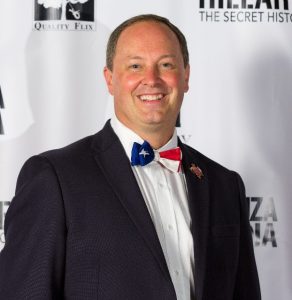
Four years ago, Bloch Executive MBA alumnus Mark Amick (‘09) was watching the Republican National Convention (RNC) on TV and thought, “that’s something I’d like to do someday.”
Last month in Cleveland, Mark realized his dream and represented his district as a Texas Delegate to the RNC. He described the convention as an “experience of a lifetime” with all of the traditional convention excitement, plus the spectacle of the roll call and rules dispute, culminating in the attendees coming together around the decided nominee.
Mark has always believed in giving back and finding the time to volunteer despite a busy career. His service has included work with the Kansas City Zoo, the City of Raleigh (NC) Greenway Trail System, and the Kirkland (WA) Heritage Society. Currently, he is serving his second term as the Vice Chair of the Denton County Republican Party. Mark says his time in the Executive MBA program helped to provide a better understanding of the relationship between government and business.
Two and a half years ago, Mark and his wife moved to Texas soon after welcoming their son, Wyatt (now 4), to the family. Recently, Mark participated in Leadership Frisco with the Frisco Chamber of Commerce. As a class project, his class raised $170,000 to create the “Ready to Read Rail Road” – an interactive learning environment within the library that features STEM activities and tips for caregivers to help them educate children between six months and five years of age. His son is an enthusiastic fan of the project.
Mark believes that, “voting isn’t enough, if you want to make a difference – you have to take action” and he encourages others to do the same. Civic engagement is an important leadership activity and one of the four pillars of the Executive MBA program. In the future, Mark hopes to draw on learning from another key theme – innovative mindset – as he considers entrepreneurship among his next pursuits.
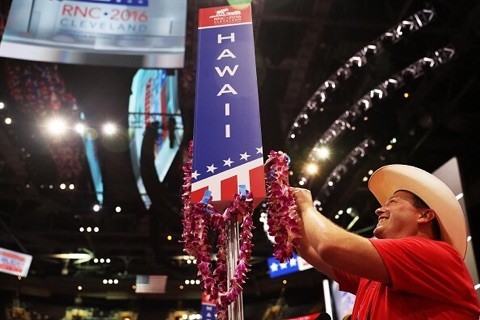
International Entrepreneurship Students Perfect Their Pitch
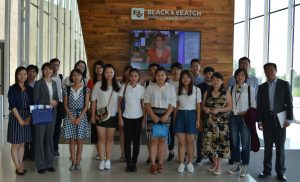
Last week, our fifth cohort of the Global Summer Entrepreneurship Program wrapped up their studies and returned home to China and the Philippines. These students may one day launch a business or develop a product that changes the world, but for now, they’re learning how to do that when that day comes.
The Summer Entrepreneurship Program launched five years ago when Bloch Executive Education established a partnership with the Jiangsu Department of Education to offer a study abroad experience for undergraduate students interested in entrepreneurship. The program was later expanded to include students from Xiamen University and others in China, Malaysia, Indonesia, and the Philippines.
The three week immersion program centers on a competitive simulation in which students design and launch a business. Students study and apply business concepts such as financial analysis and marketing strategies. They learn and practice soft communication skills for team leadership and for making an effective pitch to potential investors. Students also have the opportunity to practice and polish their English language skills.
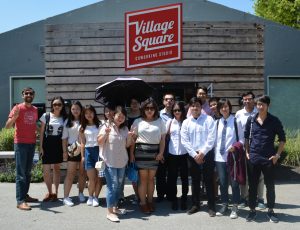
The classroom experience and competitive simulation are balanced with tours of companies headquartered in Kansas City, a visit to the Kauffman Foundation to watch entrepreneurs present at 1 Million Cups, a tour of the city, a baseball game, and other activities to help them deepen their understanding of American culture.
Students who have completed the program report a high level of satisfaction with the classes and teaching methods. Through the simulation, they gain a deeper awareness of what entrepreneurship entails and cultivate a genuine passion for the start-up experience. One team this year worked through the night (until 5:00 a.m.) preparing to make their pitch. Fortunately, their hard work paid off and they won first place!
This program, and other Bloch Executive Education International Programs, are organized by Huan Ding, International Program Principal. Next year, she is expanding the Global Summer Entrepreneurship Program to students from Latin America, Europe, Africa, and beyond for a truly global classroom experience. Huan is excited about what the future holds for these bright, young entrepreneurs and looks forward to welcoming a new cohort in 2017.
If you are interested in learning more about the Global Summer Entrepreneurship Program, please contact Huan Ding at 816-235-6153 or dingh@umkc.edu.
